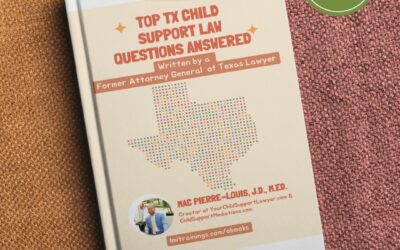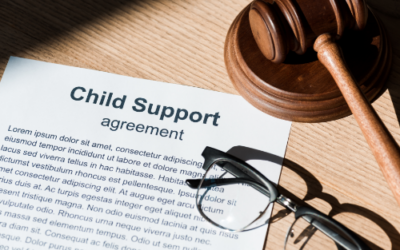THREE SCENARIOS WHEN A CHILD SUPPORT ORDER BEGINS ADDRESSING A CHILD’S DISABILITY
States, including Texas, maintain laws on support of minor or adult children with disabilities. Here are three common scenarios when child support orders begin addressing support for children’s disabilities. These scenarios are described in the context of Texas law, but may be applicable to other states’ laws. As always, before making a major legal decision, consult your attorney to discuss your specific set of facts.
- WHEN a minor child’s disability is known at the time the parents are completing an initial support order.
- A child may be born with a disability or she may have a disability that develops over time. In either case, when a child’s disability is known to exist at the time the parents obtain a child support order, the parents may address the existing disability in the order and confirm the amount of money (if any) that will go toward mitigating the disability’s associated costs. Questions such as whether a child’s condition is a true disability or whether the alleged disability warrants additional financial support may be up for debate. Texas parents should just remember that a court, even in an initial support order, can order one or both parents to support their disabled child indefinitely if it’s found the child will not be capable of self-support.
- WHEN a child support order exists and the minor child subsequently develops a disability.
- Sometimes a child’s disability does not exist at the time the parents obtain an initial child support order. Parents may be dealt the unfortunate circumstance of discovering their child’s newly developed disability several years later. Parents may wish to modify an existing child support order to account for the new additional costs associated with the newly discovered disability. Again, in Texas the courts are authorized to order indefinite support in the new modified order if the child will not be capable of self-support.
- WHEN an adult child has a disability that existed before he or she turned 18 years old.
- This scenario is the most controversial because it sometimes involves the modification or even the establishment of an initial order after the child reached adulthood. Though it happens infrequently, if an adult child’s disability exists prior to the child’s 18thbirthday, Texas courts may order one or both parents to support the adult child who has a mental or physical disability, whether that child is institutionalized or not, when it’s found that child will not be capable of self-support due to that disability. The drama that occurs in these types of cases can be as common as a CP racing to the state child support office on the eve of her disabled child’s 18th birthday to establish an order finding disability and ordering NCP to pay indefinite support to as improbable as a disabled 24 year old suing his parents to have them financially support him indefinitely. Yes, the law allows for both!
The above is for informational purposes only and does not constitute legal advice nor does it create an attorney-client relationship between the writer and reader. It is prudent to speak with an attorney before making any major legal decision.
Mac Pierre-Louis, an attorney at The Law Office of Pierre-Louis & Carr, PLLC based in Houston, TX, writes about child support law issues. He is bar licensed only in the states of Texas and Florida.




